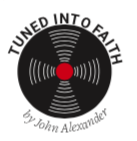
With Daylight Saving Time upon us, this could be a good opportunity to reflect about songs that revolve around the notions of how time passes, how to hold onto it, and how to use it well.
Songwriters have advocated for freezing time, turning back time, and of course, realizing that there is a time for every purpose under heaven.
 Just about everyone has special moments in their lives that they wish could go on forever. Many memories revolve around time spent with loved ones who have passed on, old loves they simply can’t forget, and special occasions that become milestones in life’s journey.
Just about everyone has special moments in their lives that they wish could go on forever. Many memories revolve around time spent with loved ones who have passed on, old loves they simply can’t forget, and special occasions that become milestones in life’s journey.
A good example of this is Paul Anka’s 1975 Top 10 hit, “Times of Your Life,” which was originally intended as the musical background for a Kodak commercial. Anka sings sentimental lyrics describing the fleeting nature of time in the lines, “Good morning, yesterday / You wake up and time has slipped away / And suddenly it’s hard to find the memories you left behind.”

Anka, a noted songwriter who penned such ’50s classics as “Puppy Love,” “Diana,” and “Put Your Head On My Shoulder,” not to mention the Frank Sinatra standard “My Way,” did not write “Times of Your Life.” But sensing that it was an evocative ballad, he opted to release the entire song as a single. The result helped extend his mid-’70s career resurgence.
Composed by songwriters Roger Nichols and Bill Lane, “Times of Your Life’’ served as a plea not to take those special occasions for granted and to simply “collect the dreams you dream today” so that you can remember the times of your life.
Singer and actress Cher also enjoyed a career resurgence thanks to a song about time. After having scored a number of hits with then-husband Sonny Bono during the ’60s, Cher entered the ’70s as a solo artist with a string of chart-topping hits, including “Gypsies, Tramps & Thieves,” “Half-Breed,” and “Dark Lady.” In 1989 she returned to the charts with the Top-10 hit “After All” (a duet with Peter Cetera) and “If I Could Turn Back Time,” which was written by Diane Warren.
The lyrics struck a nerve with listeners; the singer wished she could turn back time and take back the hurtful words she spoke to a loved one. She admits that her world was shattered, and things have never been the same for her after losing the love of a lifetime.
The song — a plea to avoid pride and arrogance that stop you from letting someone know the depth of your love — remains one of Cher’s most beloved ballads.

Singer-songwriter Jim Croce left a lasting impression with “Time in a Bottle,” his heartfelt words to his wife upon learning that he was about to become a father. Croce was born into an Italian Catholic family in Philadelphia before converting to Judaism when he married Ingrid Jacobson. Croce was a junior at Villanova University when he fell in love with 16-year-old Ingrid. They performed as a folk-singing duo before Ingrid encouraged Croce to pursue his dream of celebrity.
“From the moment he learned I was pregnant, Jim felt this was his last chance, before the baby came, to make music his profession and provide for his family, too,” Ingrid recalled. “That night, he sat down at our little kitchen table and recorded the haunting melody and words for ‘Time in a Bottle.’”
The song remains one of the finest songs in any artist’s catalog. The notion of freezing time and holding onto those moments forever could not have been more clearly articulated. The singer is fully aware that the best times of his life are happening as he writes and, even as a young man, he realizes how fleeting those moments can be.
In the truest sense of devotion he writes, “If I could save time in a bottle / the first thing that I’d like to do / is to save every day ‘til eternity passes away / just to spend them with you.” It’s profound, poignant and prescient: Croce would tragically perish in a plane crash at 30 years of age, just two months before “Time in a Bottle” reached No. 1 on the pop chart.
There have been so many songs referencing the fleeting notion of time, such as:
- “Time of the Season” by the Zombies
- “It’s Just a Matter of Time” by Brook Benton
- “Funny How Time Slips Away” and “Healing Hands of Time” both by Willie Nelson
- “Comes a Time” by Neil Young
- “As Time Goes By,” which was recorded by a number of artists, including Dooley Wilson and Frank Sinatra.
But it’s a song with words from the Bible that best put time into perspective.
The Byrds’ number 1 hit from 1965, “Turn! Turn! Turn! (To Everything There is a Season),” containing lyrics adapted by Pete Seeger from the Book of Ecclesiastes, might just be the definitive song about understanding the intricacies of time in our lives.
The central conceit of “Turn! Turn! Turn!” is that God has provided us with a paradigm that includes a time for every season and every event in our lives. Seeger, drawing upon the Bible, reminded us, “To everything there is a season, and a time to every purpose under heaven.” We are told it is all in God’s hands, from “a time to be born” to “a time to die.” We must make the most of every season we have, including a time for love, a time for hate, and, ultimately, a time for peace.
After promising a time for peace, the only additional lyric Seeger adds to the biblical verses is “I swear it’s not too late.” That emphatic plea becomes a prayer for peace — cessation of war and the blessings of peace of mind, a peaceful ending to our lives, and, intrinsically, a peace that will come for all of us … in time.
